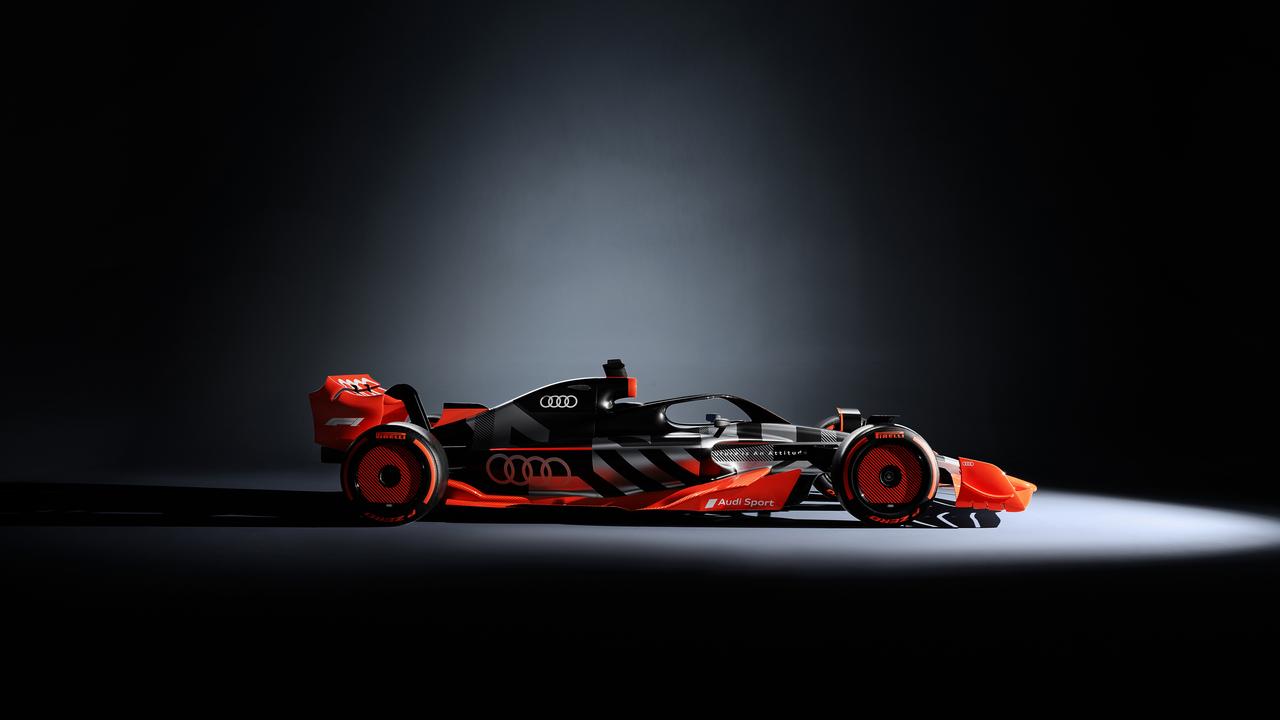
Audi has finally confirmed one of the F1 paddock’s worst-kept secrets by announcing it will enter Formula 1 as a power unit manufacturer in 2026.
The Volkswagen-owned German auto giant made official the long-expected news a week after the FIA approved new engine rules for 2026.
The new regulations dramatically will increase the motor’s electrical power and include a cost cap for all engine builders.
Watch every practice, qualifying and race of the 2022 FIA Formula One World Championship™ live on Kayo. New to Kayo? Start your free trial now >
Audi chairman Markus Duesmann said they were crucial to his company’s decision to join the sport.
“I think it’s perfect timing due to the new rules that are established now for us to enter F1,” he said.
“There are many aspects. We have decided to be a fully electric car manufacturer, and F1 changed the rules in a way that we can enter with a very high electric part of the powertrain with renewable fuels and Formula 1 have installed a cost cap that makes it very attractive for us to enter now.
“We started to electrify our motorsport program in 2012 with our hybrid car at Le Mans, we continued the path with Formula E and also our Dakar project — we want to be the first car manufacturer to win Rally Dakar with an electrified powertrain — so then logical next step is to enter in Formula 1.
“And we expect technically the most highly developed electric engines, and they will be as powerful as the internal combustion engine.
“Our engineers will learn a lot about the next generation of electric engines, battery technology and software. We love that challenge of Formula 1.”
Audi is being heavily linked to a buyout of Alfa Romeo, which is run by the historic Sauber team in Switzerland.
On Friday Sauber announced that Alfa Romeo would end its title sponsorship of the team next year after more than six years in the sport.
But Duesmann said no decision had been made about works or supply deals yet.
“We haven’t decided on that,” he said.
“The decision on the team we will do within this year and depending on the team it will be a different way of engagement from our side.
“So we haven’t decided how the team will look like, but we will inform you as soon as possible.”
Formula 1 has hailed Audi’s announcement as a significant win for the new rules and the direction of the sport in recent years, with sustainability increasingly central to the category as well as regulations designed to improve competitiveness.
“I am delighted to welcome Audi to Formula 1, an iconic automotive brand, pioneer and technological innovator,” F1 CEO Stefano Domenicali said. “This is a major moment for our sport that highlights the huge strength we have as a global platform that continues to grow.
“It is also a big recognition that our move to sustainably fuelled hybrid engines in 2026 is a future solution for the automotive sector.
“We are all looking forward to seeing the Audi logo on the grid and will be hearing further details from them on their plans in due course.”
MORE MOTORSPORT
‘ONE OF THE BEST DRIVERS’: F1 champions pay tribute to sacked Ricciardo
‘I’M NOT HERE TO HELP’: Ice cold McLaren star’s brutal response to messy Ricciardo exit
PIT TALK: Alonso rejects bizarre ‘conspiracy’; Vettel’s brutal McLaren swipe
Audi’s engine announcement is likely to be followed by confirmation that Porsche will partner Red Bull to build engines in 2026. Though neither brand has been drawn on the partnership, documents released by the Moroccan competition regulator revealed plans for Porsche to buy 50 per cent of Red Bull’s F1 operation and enter into a joint venture to build power units under the new rules.
The new F1 engine rules, rubber stamped by the FIA last week, are for power units with a similar architecture to the 1.6-litre turbo-hybrid V6 motors currently power the grid.
The key change is the removal of the complicated and costly MGU-H in exchange for increasing overall electrical energy to 50 per cent of the engine’s total output. The internal combustion engine will also be powered by carbon-neutral sustainable fuels.
The FIA was also successful in implementing a cost cap for engine manufacturers, which will be set at US$95 million a year for work undertaken from 2023 to 2026 and $130 million thereafter.
New builders will receive a $10 million concession for their first two years and a further $5 million in their third season.
